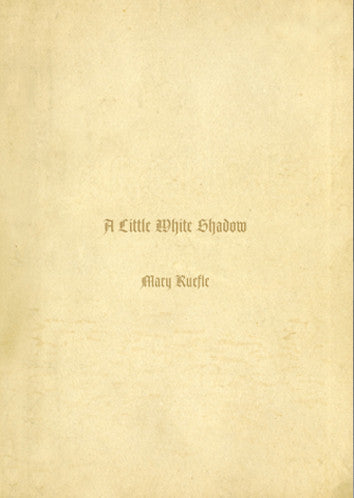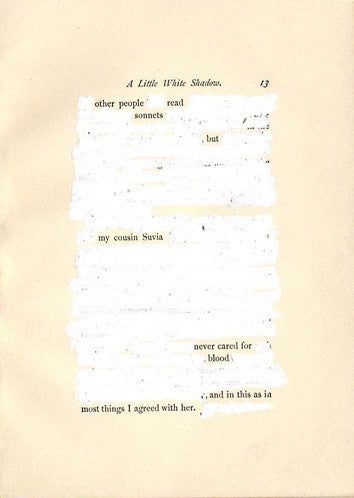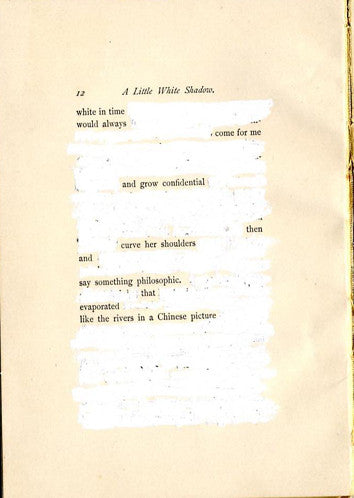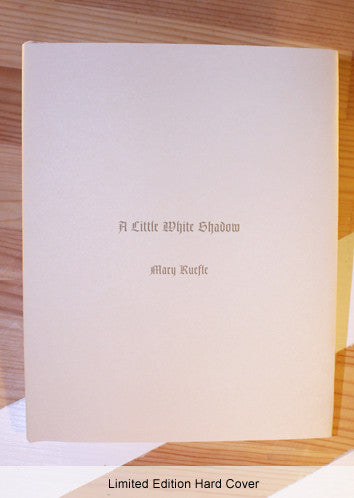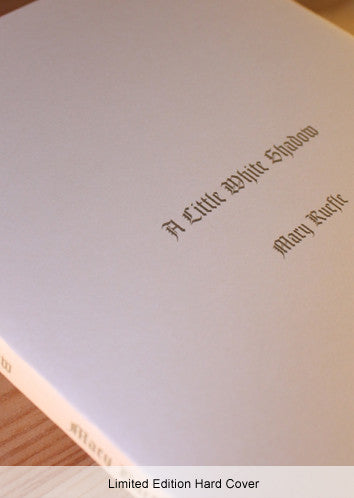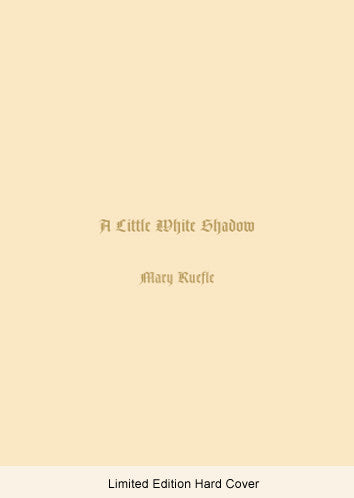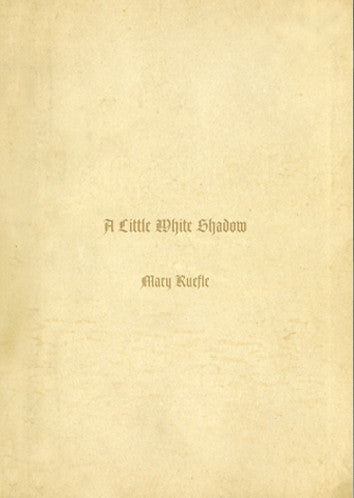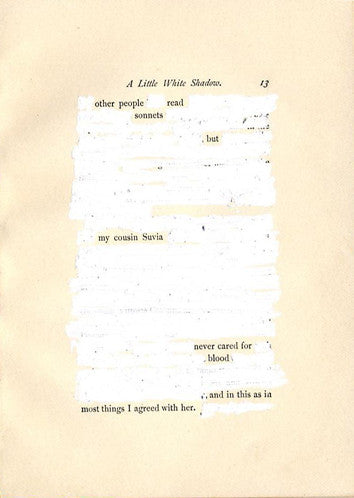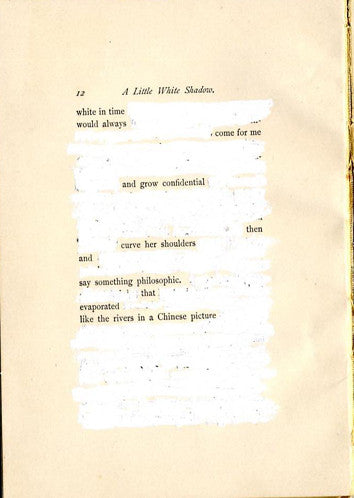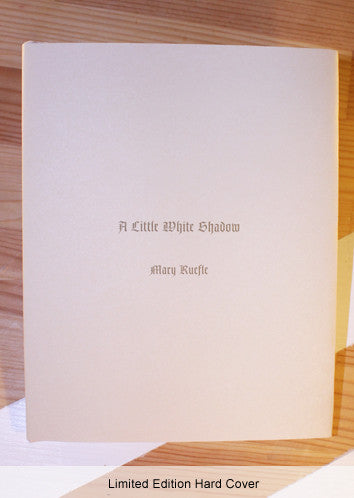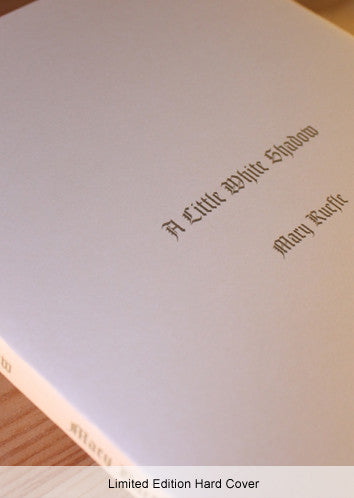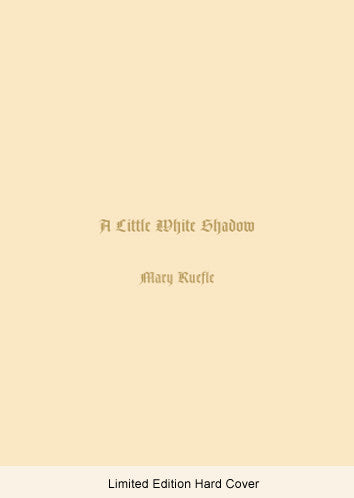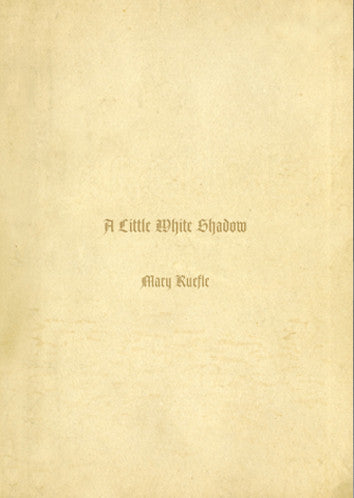
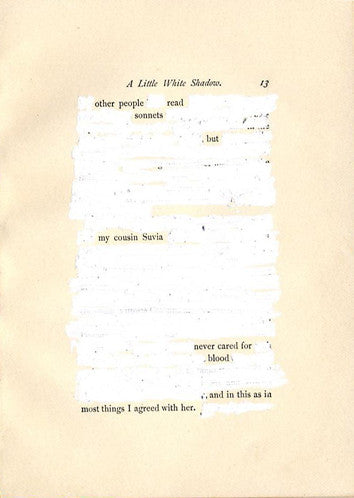
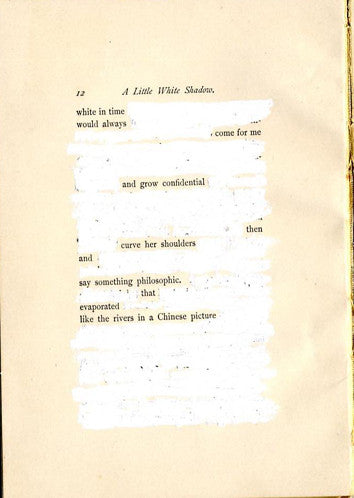
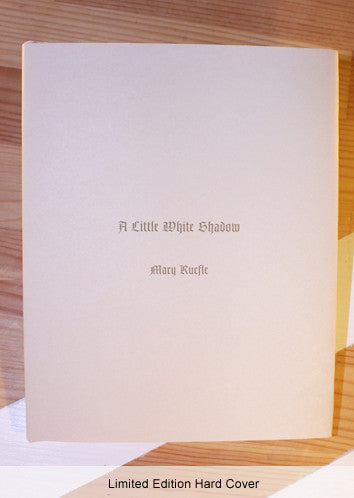
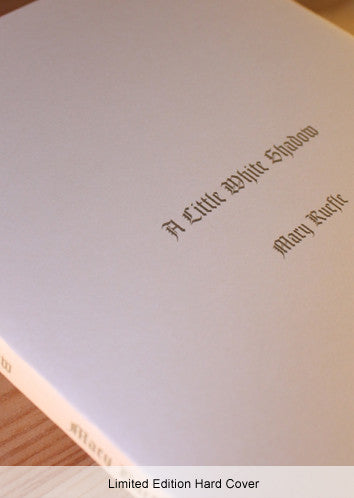
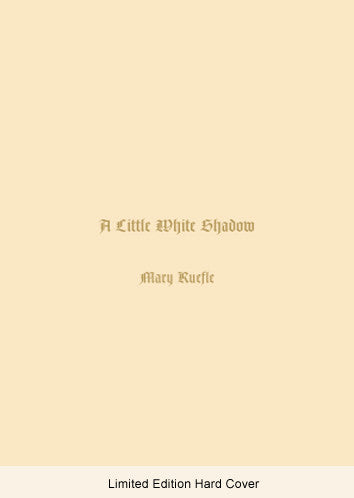
A Little White Shadow
A Little White Shadow
By Mary Ruefle
-
Selectively painting over much of a forgotten nineteenth-century book, Ruefle’s ninth publication brings new meaning to an old story. What remains visible is delicate poetry: artfully rendered, haunted by its former self, yet completely new.
-
Alongside her justly known poems, Ruefle (Tristimania, 2003) also crafts what she calls "erasures," found texts from which she has crossed out almost all the words, leaving only a tiny poem’s worth per page; the latter make up this book. In this pocket-sized reproduction of a whited-out 19th-century volume, Ruefle etches haiku-like minifables, sideways aphorisms, and hauntingly perplexing koans ("the dead/ borrow so little from/ the past/ as if they were alive") from what must have been an unusual text to begin with (Ruefle borrows the book’s original title). As much a statement about the act of reading as the act of writing, this is a strange and lovely work by a singular poet.
Publishers Weekly (Starred Review)
Ruefle’s results are pleasingly polyglot, as if she’s found in this single document an occasion to abstract a dozen poetries, each with its signature poems.
Ray McDaniel, The Constant Critic
Mary Ruefle’s A Little White Shadow is a beautiful book of found poems. The poet has Tippexed out most of each page of an old book of the same name to find short, often surreal, poems. The original is reprinted in exquisite facsimile. It reminds me of Tom Phillips’ A Humument, but this set of texts is less adorned - and all the better for that. If phrases such as ‘It / was my duty to keep / the / piano / filled with roses’ or ‘he / quickly / spoke fluently in many languages / a human humming bird’ make you smile (and they do me) then you’ll enjoy the fleeting pleasures tactile, visual and literary of this neat little book.
Rupert Loydell, Stride Magazine
The resulting emotion in this book slips past the mind like sugar through the fingers. It’s as if one is dealing only with the ghost of a narrative--the chosen words forming a new entity. The book raises beautiful imagery in the reader’s mind, and questions about what belongs to time and tradition, and what belongs to chance.
Cynthia Arrieu King, Octopus Magazine
This work offers another angle on collaboration—can one collaborate with a text itself rather than with an author? The validity of erasure texts and other forms of collage is also frequently questioned, and yet Ruefle’s process here is a condensed version of what all poets do—consider the field of language and make careful choices. By selecting words with large fields of connotations, she develops a rich, haunting atmosphere that hints at narrative while leaving it in suspension.
Cole Swensen, The Poetry Foundation
In the tight and tiny A Little White Shadow, Mary Ruefle tries her hand at what might be called a book-length erasure (a series of untitled erasures, if you wish), to swift and satisfying results.
John Deming, Coldfront
The act of erasure represents a kind of poetic anorexia, and as a verbal whittling down, the poems edge toward a Beckettian silence. Ruefle’s poems ... recall the very considered sparsity of haiku. But the skeletal striptease is not an essentialist one. The original texts are not being subtracted down to some fundamental truth, but instead become textually overdetermined.
Lily Saint, Harp & Altar
With its competing visual contexts (completely obliterated, partially obliterated, and unobliterated) A Little White Shadow is true to its title, operating at the level of shadow: self-consciously partial, shifting beneath the writer’s hand and the reader’s gaze, simultaneously uncovering and recovering, restless, transient, and transitive.
Emily Carr, How2
For the past decade, [Ruefle] has been producing “erasures” ... but because this is done on the printed page rather than with the delete key, the result is an investigation on the texture of silence, the imprint of the unsaid, the unknown, the forgotten. The volume erased becomes a layering of silence, a study of how some words fade while others remain; how meaning can be reconfigured by time; how words can sometimes reposition themselves in memory; and, finally, how the unspoken and the retracted can establish a rhythm of their own.
Akiko Busch, American Craft -
Mary Ruefle is the author of many books, including, most recently, The Book (September 2023), along with Dunce (Wave Books, 2019), which was a finalist for the 2020 Pulitzer Prize, longlisted for the National Book Award and the National Book Critics’ Circle Award, as well as a finalist for the LA Times Book Prize. She is also the author of My Private Property (Wave Books, 2016), Trances of the Blast (Wave Books, 2013), Madness, Rack, and Honey: Collected Lectures (Wave Books, 2012), a finalist for the National Book Critics Circle Award in Criticism, and Selected Poems (Wave Books, 2010), winner of the William Carlos Williams Award from the Poetry Society of America. She has also published a comic book, Go Home and Go to Bed! (Pilot Books/Orange Table Comics, 2007), and is an erasure artist, whose treatments of nineteenth century texts have been exhibited in museums and galleries and published in A Little White Shadow (Wave Books, 2006). Ruefle is the recipient of numerous honors, including the Robert Creeley Award, an Award in Literature from the American Academy of Arts and Letters, a Guggenheim fellowship, a National Endowment for the Arts fellowship, and a Whiting Award. She lives in Bennington, Vermont, where she serves as the state’s poet laureate. Her forthcoming book of prose, The Book , will be published in 2023.
Publication Date: April 1, 2006
ISBN# 9781933517032 (4.5x5.75 48pp, paperback)
ISBN# 9780933517070 (4.5x5.75 48pp, limited edition hardcover)
Couldn't load pickup availability

